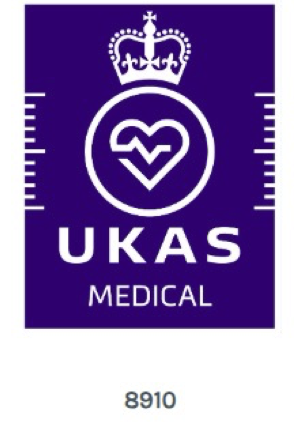Liver function
Protein, Albumin, Bilirubin, ALT, ALP with GGT automatically reflex tested if ALP > 200
Renal/Electrolytes
Sodium, Potassium, Urea, Creatinine
Cardiac
Troponin I
Lipid
Cholesterol, Triglyceride
Bone
Calcium, Phosphate, ALP, TP, Alb
Blood Film
If the full blood count results are abnormal or there is a specific indication on the request form, a blood film will be stained and examined microscopically. Blood films are spread and stained by a UKAS accredited automated method however in the event of analyser failure blood smears will be manually spread and stained which is currently an unaccredited procedure. Blood films requiring clinical comment will be referred to a Haematology Consultant or Registrar. Delay or marked temperature changes in transit can affect morphology.
Documents for review in blood sciences are placed here, from the autoarchive process
Birmingham Heartlands Hospital
IT SHOULD BE REMEMBERED THAT AN EMERGENCY REQUEST SHOULD NOT BE MADE UNLESS THE RESULT IS REQUIRED FOR THE IMMEDIATE MANAGEMENT OF THE PATIENT.
An emergency service is provided for the following tests
All routine biochemistry including digoxin and osmolality (excluding cyclosporin and xanthochromia analysis)
ESR
This is the standard haematological inflammatory marker, performed in the laboratory, although CRP is the preferred test (Biochemistry request). The ESR may be performed on the same EDTA sample sent for FBC if sufficient.
Only the fluid types below and specific analyses tabled are now allowable in Telepath and ICE. Where a fluid type or analysis is not allowable in Telepath please book as miscellaneous and then contact the Duty Biochemist before analysis is performed.
All fluids must be centrifuged and then analysed only if free from particles.
Full Blood Count
A full blood count consists of haemoglobin, total white cell and differential counts, platelets and full red cell indices. All of these values are provided using a single EDTA sample. Please note that if venepuncture is difficult and mixing with anticoagulant delayed, micro-clot formation may cause a falsely low platelet count. If the full blood count results are abnormal or there is a specific indication on the request form, a blood film will be stained and examined microscopically.
Haematology Services
The laboratory provides a comprehensive consultant-led service providing both diagnostic and clinical advice 24h/day. The laboratory provides services to GP's by direct access and to Heartlands, Good Hope and Solihull hospitals. There are close links with the Clinical Haematology service.
A comprehensive diagnostic services is provided. For results contact the Laboratory Medicine Results Line on ext 41185. If you need to contact the laboratories please telephone ext 40908 (Heartlands), ext 47279 (Good Hope) or ext 44527 (Solihull). Overnight and weekends contact the laboratories via bleep 2449 (Heartlands) or bleep 8779 (Good Hope). Consultant advice is available via the laboratory or the Heartlands switchboard.
Please note: Hb and MCHC results are now reported in g/L instead of g/dL in line with national guidelines. This means a Hb previously reported as 12.5 g/dL will be reported as 125 g/L
The Department operates a 24 hr service, 7 days a week.
To ensure that immediate attention is given to emergency requests, doctors must phone the laboratory to ensure that staff are aware of the priority. It is the responsibility of the requesting doctor to ensure the sample is sent to the Department.
For out of hours clinical advice (17:30 - 09:00), please contact switchboard and ask for the Duty Consultant On-call for the clinical speciality you require
A list of all tests performed at this laboratory, reference ranges and details of turn-around times are given in the Test Database.
If the test you require is not shown here, please contact the laboratory to see if we can do it or, alternatively, suggest where else it may be performed.
The following sample types should not be sent via the airtube system
-
CSF for Xanthochromia analysis
-
Pleural fluids for any analysis

Pathology opening ceremony Video from NHS Media Hub on Vimeo.
Department Profile
The Clinical Chemistry/Immunology and Toxicology departments provides a wide range of analytical and advisory services, which are available to inpatients, outpatients, and the community at large. As you would expect from a large teaching hospital this service is backed up with training and research programmes designed to improve patient care.
To ensure the highest standard of work we participate in extensive internal and external quality assurance schemes.
